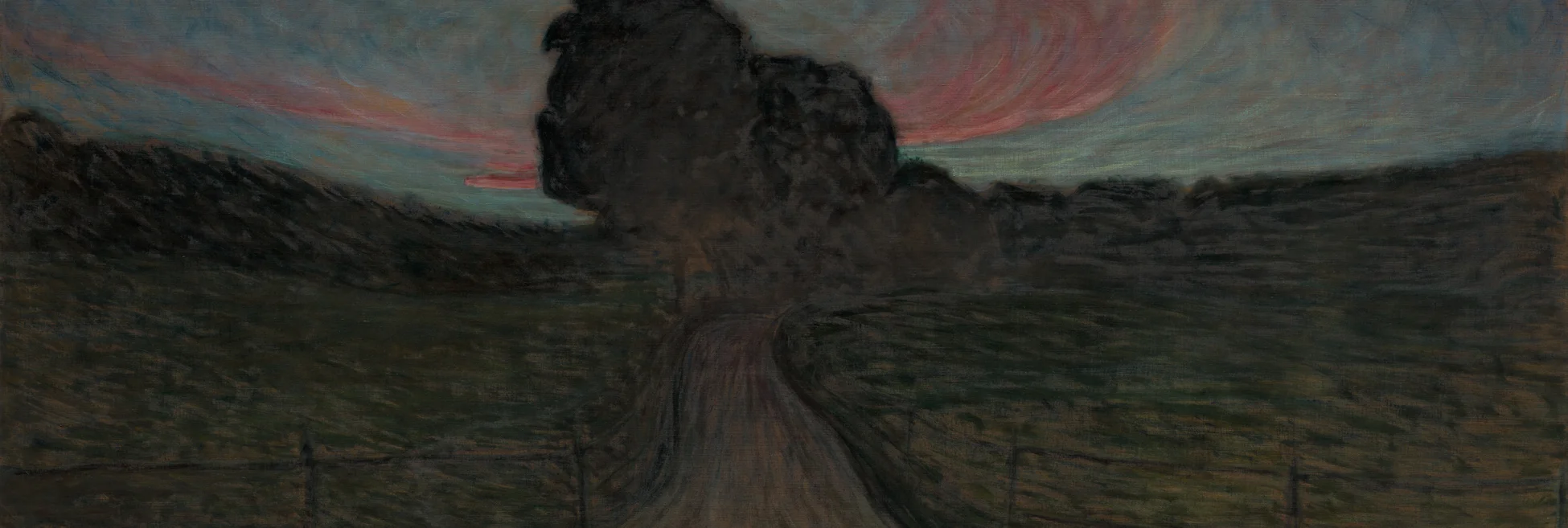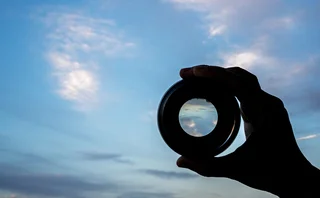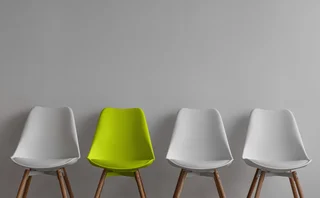
Waters Wrap: On getting back to normalcy
As “work from home” becomes the new normal, Anthony explores his own anxieties and whether they mirror similar trends unfolding in the workplace.
Since it’s the last week of August, and people might not be as geared up for hardcore financial technology analysis, I’m going to use this column as something of a therapy session. I hope that by explaining my situation, it might help those who are suffering from something similar, or who work with someone who has similar troubles. If that’s not your bag, I totally understand—I’ll be back next week with the hardcore fintech stuff.
About six years ago, I was driving with my girlfriend, Alice, back to New York after visiting her family in Ohio, taking I-80 across Pennsylvania. As I was driving through the mountains, I started to experience vertigo. Perhaps recklessly, I white-knuckled it, gritted my teeth, and powered through. It happened again going through New Jersey as we headed into the Holland Tunnel. When we got into Manhattan, I pulled over, and Alice had to take us the rest of the way as I nearly puked while crossing the Williamsburg Bridge.
By the time we got home and parked the car, I was soaked in sweat and I could barely breathe; I thought I was having a heart attack. We went to urgent care, where the doctor said I most likely experienced a panic attack. I’ve subsequently had five similar episodes in the years thereafter. Since then, any sort of travel has become painstaking—even simply crossing the East River from Brooklyn or taking an elevator up a high-rise office building.
I’ve been diagnosed with agoraphobia and claustrophobia. The funny thing is that I’ve flown to Asia and Europe several times, and I’ve flown all over the US and Canada. Since moving down to New York to work in 2007, my office has sat more than 20 floors up for almost the entire time. I’ve driven up and down the East Coast of America, and had to drive through the Adirondack Mountains to get to my college in Plattsburgh, New York. Exits up there are, at points, more than 25 miles (40 kilometers) apart. Hit a patch of ice in the winter and your car is heading into a ditch or off a cliff.
Flying to Tokyo, taking an elevator, or driving up a mountain—no problem. Then…it was. And is.
While I had these issues prior to the pandemic, the isolation of Covid certainly didn’t help. With each year, my condition has only gotten worse. I’ve seen several psychologists and psychiatrists and tried Xanax and Klonopin. Nothing has helped, though I’m going to continue to work on it and try new things (hello, psychedelics!).
Here’s the thing: I am so fucking scared of what the future holds for me. What if this gets worse? When I visit my parents and siblings, I have to take a train 10 hours to Raleigh, North Carolina—it’s not easy, but I’m able to power through. But what if that changes? Alice, my girlfriend of eight years, is from the Philippines and she has a lot of family still there, so if she needs to go there for a family emergency, I won’t be able to go with her. And as for my work life, I no longer go into the office as the idea of having to get into an elevator is crippling.
Here’s another admission: As things have gotten worse, and as therapy and prescribed drugs have not helped, I’ve leaned heavily on the bottle to cope with my fears. Anyone who knows me well knows I’ve been a high-functioning alcoholic for a long time. Quite frankly, living in New York, you have to really try hard to not be that—every social event is, “Let’s meet for drinks.”
I don’t have kids, so I have the freedom to live a bohemian lifestyle. I’m a good partner to Alice, or so she tells me. I’m a good friend to my mates, or so they tell me. And I work hard, or so I like to think. But when you’re having a few beers or whiskey to simply get the day started…well, my doctor, speaking on behalf of my liver, tells me that’s not sustainable.
As I’ve opened up more and more to people about my anxieties, I’ve learned that I’m certainly not alone. While agoraphobia might not afflict many people (1.3%), the fears that I have—and the way I cope with those fears—are not unique.
So what’s the point?
That subhead isn’t a plea for help—it’s just a shoddy transition to explain why my story might be important to you.
According to a professor at Stanford University who studies work-from-home trends, “The shift to WFH is the largest shock to labor markets in decades. Pre-pandemic WFH was trending towards 5% of days […by 2022] WFH is now stabilizing at 30%, a 6-fold jump. In America alone this is saving about 200 million hours and 6 billion miles of commuting a week.” Furthermore, according to this Washington Post article, WFH is most prevalent in tech, communications and finance.
This trend toward working from home is a good thing (at least for industries where that’s a viable strategy). But there’s a delicate balance that needs to be monitored closely. When your home is where you interact with your family/significant other; where it’s your place that you unwind and relax “after” work; where you exercise; and where it is your actual place of work, the thing that I’ve learned is that a home can feel more like a prison. Hence, going out to a bar to get away from “the office” seems like a healthy solution to those feelings of isolation and entrapment.
My name is Anthony Malakian. I’m an alcoholic. I have anxiety. There’s irony in there, which is using alcohol to help quiet the anxiety, but it’s also the alcohol that’s heightening the anxiety. These are things that I’m working on every single day. If I don’t, what does my future look like? Is Alice in my life? Do I have a good relationship with my family and friends? Am I a good employee? Fortunately, I live and work with people who are incredibly supportive, understanding, and—most importantly—empathetic.
Am I a good employee? That last question might seem silly to some, but for me, I love being a journalist. When we publish something that’s really good, it’s a high better than alcohol or hard drugs. If I didn’t love my job, I’m not sure where I’d be. While some of you reading this might hate your job and this industry, I know that most of the people that I speak with are very proud of the products and businesses they create. So maybe that’s my convoluted way of getting at this point: Feeling like you’re on a team and that you’re working on something that’s good—whether that be journalism, or building a new piece of technology or data platform—is so important.
Working from home is a positive experience, but there are trade-offs. Conversely, being a hard-ass and forcing everyone into the office when maybe that doesn’t work for everyone, can destroy morale. What’s the right balance? Well, I have no clue, but I’m going to try and figure it out as we try and get to this new era of normal. But for my money, it will be a blend of empathy and engagement. Have thoughts of your own, let me know: anthony.malakian@infopro-digital.com.
Further reading
Only users who have a paid subscription or are part of a corporate subscription are able to print or copy content.
To access these options, along with all other subscription benefits, please contact info@waterstechnology.com or view our subscription options here: http://subscriptions.waterstechnology.com/subscribe
You are currently unable to print this content. Please contact info@waterstechnology.com to find out more.
You are currently unable to copy this content. Please contact info@waterstechnology.com to find out more.
Copyright Infopro Digital Limited. All rights reserved.
As outlined in our terms and conditions, https://www.infopro-digital.com/terms-and-conditions/subscriptions/ (point 2.4), printing is limited to a single copy.
If you would like to purchase additional rights please email info@waterstechnology.com
Copyright Infopro Digital Limited. All rights reserved.
You may share this content using our article tools. As outlined in our terms and conditions, https://www.infopro-digital.com/terms-and-conditions/subscriptions/ (clause 2.4), an Authorised User may only make one copy of the materials for their own personal use. You must also comply with the restrictions in clause 2.5.
If you would like to purchase additional rights please email info@waterstechnology.com
More on Comment
In Absentia: Remembering Sandra Villena and finding her killer
Sandra Villena, a 32-year-old market data professional on the rise, was murdered while on vacation in October 2022. Nearly a year later, her friends and family are still seeking justice, while they learn how to live with the absence that now fills their lives.
In Absentia: Recordando a Sandra Villena y en búsqueda de su Asesino
Sandra Villena, una profesional de datos de mercado de 32 años con gran promesa, fue asesinada mientras estaba de vacaciones en octubre de 2022. Casi un año después, sus amigos y familiares todavía buscan justicia, mientras aprenden a vivir con la ausencia que ahora llena sus vidas.
Demystifying private markets liquidity in 2023
Private markets are being democratized at an alarming rate, and the new entrants’ structures could be misleading. Time to cut through the noise.
Understanding investor overlap across late-stage private stocks
Investing in private markets is no longer just for venture capitalists and private equity funds. But as demand for stakes in these companies grows, so does the overlap in who is investing, as well as calls for more consistent valuations.
People Moves: DTCC, Octaura, Baton Systems, and more
A look at some recent people moves in the capital markets tech and data space.
American unicorns: When primary rounds are distant, secondary markets provide clarity
Unlike in the public markets, valuations of so-called ‘unicorn’ start-ups might only be updated following funding rounds. What if investors want insights more frequently?
Beware the duty of care! Why a level playing field for responsible data sharing in financial services is essential
By Elise Soucie, associate director, technology and operations division, at the Association for Financial Markets in Europe (Afme)
The tortoise and the hare ... and the unicorn
Where will private market unicorns finish in the race between the public market tortoises and hares? ApeVue looks at data from the opaque private markets for answers.







